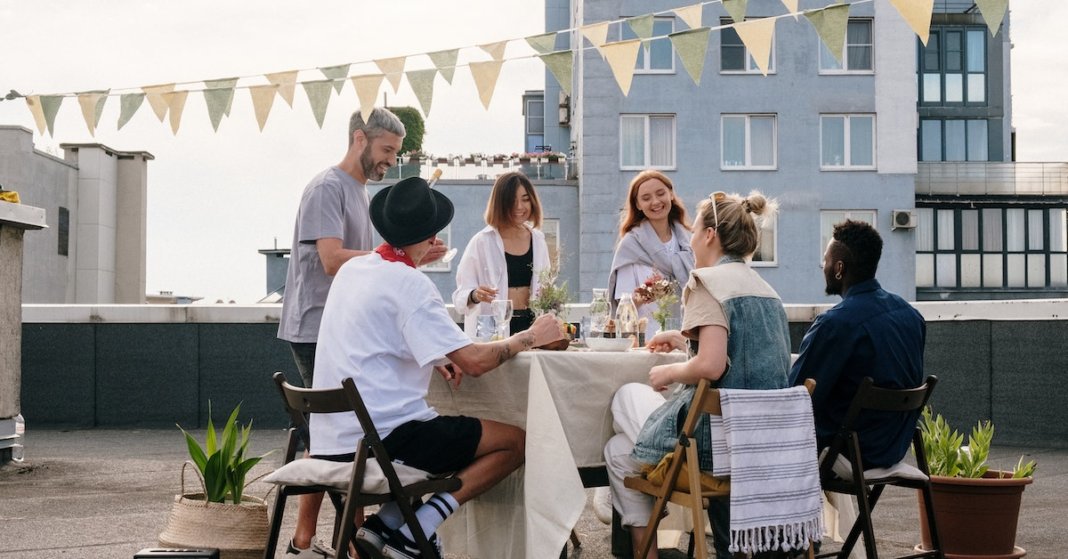Beautiful coastal cities, extraordinary wildlife, lush forests, and the vast red Outback, what’s not to like about Australia? Its wide variety of ecosystems is a perfect depiction of the varied culture and lifestyle of the Australian people, so if you’re planning to study here, you’re in for a treat.
With many Australian cities such as Melbourne, Sydney, Brisbane, Adelaide, and Perth ranked in the top 100 student cities in the world, it is no surprise that Australia attracts a large number of international students.
If you’re wondering what student life is like in Australia, this article will cover everything you need to know, from the Australian lifestyle to universities, student clubs, food, and more.
Table of Contents
The Australian Way of Living
We don’t know if it’s the warmer climate or being a multicultural country that influences the laid-back lifestyle and life among equality and mateship in Australia. Compared to some other countries, Australians are more casual, relaxed, and may greet you with a “G’day mate!” even if they don’t personally know you. Australian key values include freedom, parliamentary democracy, and equality of opportunity.
Living in Australia, you’ll notice that locals value leisure time and time spent outdoors with friends and family. Whether it’s a barbeque in the bush, a beach swim or surfing session, or having a cup of coffee at one of the local cafes, Aussies cherish their time for recreation.
Major cities such as Sydney, Melbourne, Perth, Brisbane, and Adelaide have all made an appearance in the top 10 most livable cities in the world in the last few years. Considering that scores are calculated by factors such as healthcare, education, stability, culture, environment, and infrastructure, this shows that Australia is a great place to live, be it as a student or worker.
Australian Climate
Australia’s climate varies significantly throughout its eight states and territories. There are three main climate zones across Australia: arid, tropical, and temperate. Arid and semi-arid climate regions are hot, dry, and receive very little rainfall.
As the second driest continent, around 70% of Australian land is of arid or semi-arid climate, with regions such as the Outback seeing temperatures as high as 50°C during summer. Tropical climate regions in the north are characterized by hot temperatures all year round and frequent rainfall.
Temperate climate regions such as the eastern portion (Australia’s most populated area) experience wider ranges of temperatures throughout the year, with moderate rainfall, mild to warm summers, and cool to cold winters.
It is worth noting that Australia’s seasons are at opposite times to the northern hemisphere: summers occur from December to February, and winters from June to August.
Australian Universities
The Australian education system and higher education institutions are of excellent quality and attract students from countries around the world. With top-notch facilities, experienced lecturers, and a variety of student resources, these institutions are renowned for their quality education. Universities typically offer three main types of degree programs: Bachelor, Master, and Doctoral Degrees. Most universities also offer double or combined degree programs, as well as Honours degree programs.
Australia is home to 43 universities in total, among which eight are the most prestigious. The Group of Eight (Go8) is an elite group of Australia’s research-intensive universities.
This group includes:
- The University of Melbourne,
- Australian National University,
- The University of Sydney,
- The University of Queensland,
- The University of Western Australia,
- The University of Adelaide,
- Monash University,
- University of New South Wales (UNSW Sydney).
These universities consistently rank among the top 100 global universities.
Student Clubs, Associations, & Societies
Student clubs and associations play a crucial role in adjusting to university life, establishing new friendships, and bringing you together with other students for a common purpose or cause. Most Australian universities have a variety of clubs and associations that suit the interests of their students. These can be divided into general associations that are open to all students and course-related associations for students with common study interests, such as engineering, medical, or law student associations.
When you enrol in an Australian university, you will have access to countless student clubs and societies ranging from political to music and dancing, social impact, spiritual, and, of course, sports clubs. Considering Australians’ love of sports, you’ll find plenty of clubs focusing on sports and recreation such as football, basketball, cricket, yoga, and chess clubs.
Student Accommodation
International students in Australia can typically choose from four main types of student accommodation: university-provided accommodation (residential colleges), purpose-built student accommodation, private rentals, and homestay.
- University-provided accommodation. This includes residential colleges, apartment buildings, or houses shared by students and managed by the university. This type of accommodation often offers packages that include meals, cleaning, and utilities in the overall fee. Most major universities offer such housing, which is often very convenient for international students as you can save on utility and transportation fees.
- Purpose-built student accommodation. This type of accommodation is built in convenient locations close to university campuses. These buildings often include fully furnished rooms with shared bathrooms or kitchens, or for a higher price; you can rent a private studio with your own bathroom and small kitchen. You can also access amenities such as game rooms or gyms in many of these buildings. Some of the most popular purpose-built student accommodation providers with locations in various Australian cities include UniLodge, Scape, and Yugo.
- Homestays. In homestay accommodation, students are hosted by a local family in their home, usually in the first few months of their arrival in Australia. By choosing this accommodation, you’ll experience life among locals and learn how to integrate into life in Australia. The Australian Homestay Network is a great resource to get more information and find homestay opportunities.
- Private rentals. This is another common student accommodation option, in which you rent a private flat or a house that you can typically share with other people. This option is great if you seek a more independent way of living and want to choose the location of your home yourself. However, you should note that there is a current housing crisis in Australia and many other countries, so finding private accommodation can take more time.
Public Transportation
When you arrive in Australia, you will have plenty of transportation forms to choose from. Most Australian states and territories provide extensive networks of public transportation that include buses, trains, trams, and ferries.
Most major cities in Australia have their own transportation system. For example, Canberra and its surrounding suburbs use the MyWay ticketing system, Brisbane offers the go card, Sydneysiders use the Opal smartcard, Melbourne offers the myki card and V/Line tickets, Perth uses the Transperth system, etc.
In most cities, international students can apply for concession cards that offer discounted public transport. Check your eligibility with your university or the website of your host state or territory’s transportation department.
Australian Food & Drink Culture
As a result of its multiculturalism, Australia’s food scene offers a variety of cuisines from all over the world. You’ll find plenty of Chinese, Japanese, Thai, Greek, Turkish, Italian, French, and other cultural dishes in restaurants and eateries across the country. Authentic Australian cuisine, as well, offers some distinct dishes that incorporate native bush foods, crocodile, kangaroo or emu meat, as well as fresh seafood.
In many regions of the continent, the climate is ideal for horticulture and agriculture, which means that there is plenty of domestically-produced and fresh food all year round.
Alcohol and coffee consumption is also a big part of Australian culture. Social situations such as parties, sports events, and after-work outings often call for alcoholic beverages such as wine, beer, and spirits or liqueur. Cafés are also quite popular across the country, with specialty coffee culture being the most popular in comparison to big coffee chains. With more than 2,000 cafés, Melbourne is especially known for being an epicentre of coffee culture in Australia.
Arts & Culture
With famous art galleries, museums, and performing art centres across the country, Australia offers a vibrant artistic and cultural scene. The Art Gallery of New South Wales, National Gallery of Victoria, MONA, National Portrait Gallery, and National Gallery of Australia are just some of the galleries that you can visit to view some of the vast collections of Australian art.
You’ll also find numerous culturally-significant collections across the many museums of the country such as the Melbourne Museum, the National Museum of Australia, the Heide Museum of Modern Art, the Australian Museum, and more. Dance, theatre, musical theatre and opera centres such as Her Majesty’s Theatre, His Majesty’s Theatre, the Regent Theatre, and the iconic Sydney Opera House are also an integral part of cultural life in Australia.
Australia’s heritage and diversity are also rooted in its art and culture. Varied in traditions and customs, Aboriginal and Torres Strait Islander people preserved what is today known as the oldest-living art that is still practised. With storytelling being a central aspect of Aboriginal culture, you’ll find a lot of contemporary Aboriginal art is based on “the Dreamtime”—what Aboriginal people refer to as the period in which the world was created.
Nightlife & Events
Capitals and other major cities in Australia offer a lively nightlife scene that is also a major part of student life in Australia, with plenty of things to do ranging from dive bars to nightclubs, music venues, karaoke bars, BBQs, open-air cinemas, and much more. Plenty of universities also organise student events and parties, which are a great way to meet new people.
Whether you’re into music festivals or a sports fan, Australia offers it all. The Australian Open, the Formula 1 Australian Grand Prix, the World Surfing Championships, the NRL Grand Final, the AFL Grand Final, and the Melbourne Cup are some of the many sporting events in Australia.
Australian music festivals such as Splendour in the Grass, Adelaide Fringe, Byron Bay Bluesfest, and Falls Festival gather locals and people from all over the world to celebrate music together.
Working as a Student
There are plenty of work opportunities for international students in Australia, and many choose to work while studying to financially support themselves. As for the number of hours you are allowed to work, the Australian Government will be introducing a work-hour cap of 48 hours per fortnight (two weeks) for student-visa holders on July 1st, 2023.
The previous 40 hours per fortnight cap was removed entirely in January 2022 to tackle workforce shortages; however, the working cap is being reinstated to allow students to focus on their studies first.
Your income as a student working in Australia will depend on the type of work you do, your location, and your employer. However, you can expect to be paid between AUD 25 to AUD 35 per hour for entry-level positions. Some popular student jobs include tutoring, bartending, dog-walking, assistant jobs, receptionist positions, and more.
National Holidays in Australia
Holidays are a common cause for celebration and relaxation among family and friends in Australia. For example, Sydney’s New Year’s Eve firework show is an event that gathers more than a million people around the city harbour and many more around the globe who watch it on television.
National public holidays are New Year’s Day, Australia Day, Good Friday, Easter Monday, Anzac Day, Christmas Day and Boxing Day. Other public holidays, such as Labour Day and King’s Birthday are individually declared by the governments of states and territories in Australia. These are great days to join Australians in celebrating their culturally-significant dates.
Your university years will make for some of the best times of your life, therefore, spending them in one of the world’s leading countries for education, economy, and quality of life will only add to the good experiences. Hopefully, this article has offered a glimpse of the great opportunities and student life in Australia.

